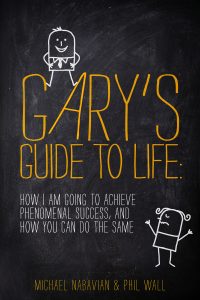The Rundown
The Recommendation
The Rating
The Links
The Reviewer
Renee Miller
Visit Renee Miller‘s website.Okay, kids. I’ve seen you on the Facebook and the Twitter. I’ve read your books, or at least a sample of them, and some of you make my eye twitch in a very bad way.
Grammar is hard. I know. I unintentionally break grammar rules all the time, although I try very hard not to. God, those wretched commas. There are some grammar rules, though, that professionals should never make. Yet, I see you making them.
You might think on social media it doesn’t matter. You can shorten “you” to “u” and who cares if you used “Your” instead of “you’re”? It’s just a Facebook status. It’s just a tweet.
NO. NO.
It is not “just” a status or tweet. It’s you representing your writing skills to your readers. If they see you making grammatical errors all willy-nilly, not respecting the damn language, they’ll be inclined to think your books are… well… they’re shit. There. Said it. Not taking it back. When you’re a writer, EVERYTHING YOU WRITE matters.
And making these mistakes in your books is worse than making them in everyday communication. A typo here, a rogue comma there; these are forgivable sins. Such things do escape the editorial eye, even in traditionally published books. However, when you make a blatant error in usage, that’s not forgivable.
But fear not, writer friends, I’ve compiled the misused and/or misunderstood words and grammatical errors that I’ve seen most often. These are tricky for many, so don’t feel bad if you’ve had difficulty with one or two.
You can hate me. You can call me an asshole. But please, pay attention if one of these is your mistake so you can stop making it.
YOU’RE/YOUR/UR
“You’re” is the contraction of YOU ARE. “Your” shows possession. “Ur” is not a word and I’m embarrassed for you.
THEY’RE/THEIR/THERE
“They’re” is the contraction of THEY ARE. “Their” shows possession. THEY’RE annoying me with THEIR loud music. “There” indicates direction. Where is my pen? It’s over THERE.
TWO/TO/TOO
“Two” is a number. One, TWO, three… “Too” is a synonym for “also” and it is used as an adjective or adverb to replace “very” or “more than.” I’m concerned TOO. She’s clearly had TOO much wine. “To” has a couple of uses. First, it may be used as a preposition of movement or direction. “I’m going TO work.” See? It shows the place you’ll arrive at as a result of moving. Easy. It may also identify the person/thing affected by or receiving something. “Take your complaints TO Joe.” And finally, it can be used as the first part of an infinitive. For those who don’t know what that means, to plus a verb makes an infinitive. “He needs TO write (verb) more often.
AFFECT / EFFECT
These words are not interchangeable, although some people seem to believe they are. “Affect” is a verb meaning “to influence.” “Effect” is also a verb, but means “to bring about or cause.” It is also a noun meaning “a result.”
You can effect (verb) change, but it’s hard to predict what effects (noun) change will have on others.
Chocolate affected (verb) her in strange and wonderful ways.
ALTAR / ALTER
An “altar” is a noun. It’s a platform essentially. You would kneel in prayer before the altar in your church, or offer your sacrifices on the altar your ancestors erected in the woods, so the crops are plentiful and the demon doesn’t eat your family.
“Alter” is a verb, meaning to change something. You had to alter the sentence so it was grammatically correct.
WHO/WHOM and WHO’S/WHOSE
“Who” is used as the subject of a verb. It is a nominative pronoun used when the “who” is a subject in your sentence. “Whom” is used as the object of the verb, or of a preposition. It’s called an objective pronoun.
You asked WHOM to dinner?
In the sentence above, the subject and verb are “you” and “asked.” The pronoun following that is the object of the verb, so “whom” is correct.
I know, it’s all so… ugh. A trick I use is to see which pronoun replaces “who” or “whom.” If it is a name or he or she, use “who,” but if it is him or her, use “whom.”
And when in doubt, rewrite the sentence to remove the problem. Hey, I never said grammar was easy.
Writers often struggle with whether to use who’s or whose, as well. “Who’s” is the contraction of “who is,” and should only be used then. “Whose” shows possession. When in doubt, change the word to “Who is” and see if it makes sense. If it does, then “who’s” is the right word.
LIE / LAY/LAID/LIED
Oh the agony these two tiny words cause writers. “Lie” means for a person or animal to lie down. It is a state of being. “Lay” is an action or the past tense of lie. “She lay there all day waiting for him to come.” “Lay” is also used in present tense when we’re referring to setting an object down. “She lay the blanket over the chair.”
Another way to explain is to say that lay (present tense) and laid (past tense) both require a direct subject and one or more objects.
Lie (present tense) and lied (past tense), on the other hand, need no object. My head hurts. Does yours? Let’s try another way.
Present tense:
You lie on a bed (subject (you), but no direct object), but you lay a gun on the table (You are the subject, and the gun is the direct object).
Past tense (this is a little trickier):
You lay on the bed, but laid the gun on the table.
That’s as clear as I can make it, kids. Good luck.
MOOT/MUTE
Oh. My. God. You all drive me nuts with this. I’ve seen these two confused too many times.
First, MUTE means silent, refraining from speech, unable to speak, not making a sound or turning off the sound. It’s pronounced m-ew-t. Okay?
MOOT, which is pronounced exactly as it’s written (Moo-(like a cow)-t), has nothing to do with sound. And it does not mean pointless. It means arguable, hypothetical or open to discussion. It is so widely misused in regular speech that many probably don’t realize they’re using it incorrectly. I’ve done it. You’ve done it. We’ve all done it. But now we know, so let’s stop doing it.
NEITHER-NOR / EITHER-OR
“Neither” and “nor” belong together in a construction. “Either” and “or” belong together. You can’t interchange them so stop doing it. Yes, talking to you over there. Stop. Don’t give me that look.
“Neither” is used in the negative. “NEITHER Ethel NOR her friends enjoy nuts.” “Either” is used to indicate an alternative. “EITHER Ethel OR her friend lied, because the nuts are gone.”
IRONY/COINCIDENCE
I’ve made the mistake of claiming something is ironic when I mean coincidence. I’ve seen you all make it too. “Coincidence” refers to a series of events that seem planned, when they’re not. "Irony" is the incongruity between what you’d expect to happen and what actually happens.
It’s not “ironic” that you moved to New York and met your third husband, who happens to be the boy you adored in high school. It’s a coincidence. Now irony… I think Alanis Morrissett explains it best:
“An old man turned ninety-eight. He won the lottery and died the next day. It's a black fly in your Chardonnay. It's a death row pardon two minutes too late. Isn't it ironic, don't you think? It's like rain on your wedding day. It's a free ride when you've already paid.” (Ironic, Alanis Morrissett)
IRREGARDLESS / REGARDLESS
This makes me stabby. It makes me look at a kitten and want to punch it in its cute, fuzzy face. So, once and for all: “Irregardless” doesn’t exist as a word. The word is “regardless.” Irregardless is in dictionaries, yes, but it is NOT a word. They list it as nonstandard, which translates to “not right so stop pretending it is, because you're wrong.” You’ve all just used it so much the grammar gods said “Fuck it. Just put it in.” and then they cried, because you broke them.
ITS / IT’S
“Its” means “of or belonging to,” showing possession. “It’s” is a contraction for “it is.” When in doubt, change the word to “it is.” If it still makes sense, you want “it’s.” If it doesn’t make sense, you want “its.”
DANGLING MODIFIERS
What the Christ is a dangling modifier? Right?! Ugh.
This baffled me when editors used to make note of it. Annoyed me, actually. I didn’t know what they were talking about and screw them anyway. Then I calmed down and learned that a dangling modifier happens when a descriptive phrase doesn't apply to the noun that immediately follows it.
Placing modifiers or descriptive phrases far from the words they describe is confusing, so the “rule” is to place your modifiers as close as possible to the word they describe or modify, rather than leave them “dangling” out there for the reader to guess what the hell they’re doing. Modifiers are adjectives, adverbs, and phrases and clauses acting as adjectives or adverbs. For example:
“Running through the fields the grass caressed my legs.”
Although we probably know what is meant here, when you take it literally, “Running through the fields” appears to modify “grass,” though we doubt grass runs anywhere.
It should read, “As I ran through the fields, the grass caressed my legs.”
Another example:
Rita is frightened of stuffed alligators and spiders.
Is Rita frightened of stuffed spiders and alligators only, or all sorts of stuffed things? How does one stuff a spider? That must be frighteningly tedious work. How do you get the innards out without destroying the spider’s… wait. A better sentence would be:
Rita is frightened of spiders and stuffed alligators.
The revised sentence takes care of the spider misunderstanding. She hates all spiders. However, while we've taken care of the dangling modifier, we’re left with some ambiguity: Is Rita not scared of live alligators too?
A better solution would be to rewrite the sentence until it conveys what you mean: Rita is terrified of spiders. She fears alligators too, even stuffed ones.
ME/I
Most people understand the difference between the two of these, except when they’re using them in a sentence. Oy. Can you send the package to Bob and I?
Wrong.
Why? Try to take Bob out of the sentence and replace it with “I.”
“Can you send the package to I?”
See? It sounds odd because “I” is the object and should never be used as such. In this instance, you’d use “me.”
LITERALLY
When we want to stress that something has a literal, rather than a figurative meaning, we use the word "literally." To use it as a replacement for weak intensifiers such as “in fact,” “positively,” “absolutely,” or “really” is wrong. To use it at all is bad, in my opinion, unless you truly are being literal. For example, “Her eyes literally popped out of her head,” is ridiculous, unless they actually fell out of her head and are rolling about on the floor. Great. Now she’s blind, and probably going do die, because that’s not a normal event, and blood is sure to follow said eyes.
Or maybe you wrote something like “I literally died.” Really? So… you're a ghost now?
LESS/FEWER
Did you know that the sign over the checkout aisle in the grocery store that reads "10 Items or Less" is actually grammatically incorrect? Well, it is. It should read "10 Items or Fewer."
Now, let that annoy you every time you go shopping. No thanks needed. I’m here to help.
Why is it wrong? I’m glad you asked. It’s wrong because "items" are quantifiable, meaning you can count out 10 items. You should use "fewer" for things that are quantifiable, like "fewer steps" or "fewer people." Use "less" for things that aren't quantifiable, like "less anger" or "less driving."
BACKWARD/BACKWARDS, TOWARD/TOWARDS, FORWARD/FORWARDS, ETC.
I get really annoyed by the “s” at the end of these words. Like really annoyed. In truth, as an adverb, either word will do, but as an adjective, only the forms WITHOUT “s” is correct.
For example:
Backward would be used if you mean facing or directed toward (notice no “s” because it’s directional?) the rear or back, or if you’re using backward to refer to a person’s behavior, intellectual shortfalls, progress, or direction in time.
Backwards (ugh, I hate that s) can be used when you mean toward the rear as well. I guess…
Whenever you’re not sure, drop the “s.” Just do it, okay. You won’t be wrong and I’ll love you far more than I will if that “s” is there.
That’s all for today. I hope I’ve helped at least a few of you avoid making mistakes that will irritate me. We all know it’s all about me, don’t we? Just kidding.
A final thought: Grammar has some hard and fast rules, like many of the above, but it also has some rules that are bendable, when you know what you’re doing. Always make sure the rules you break are intentional, and come from a place of knowledge and experience, not ignorance, and you’ll be just fine.









